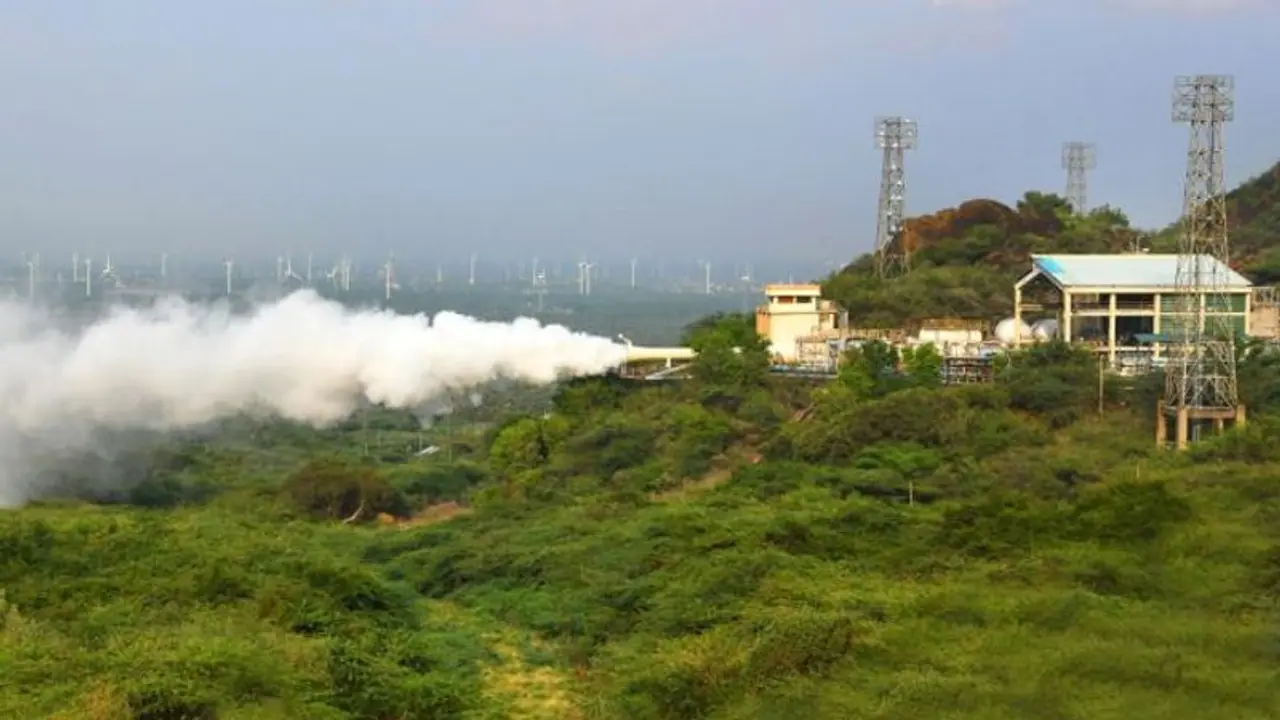The flight acceptance test comes days after the successful launch and deployment of the first set of 36 OneWeb satellites from the Satish Dhawan Space Centre (SDSC- SHAR) in Sriharikota on October 23.
The Cryogenic engine for the next mission of LVM3-M3 underwent flight acceptance hot test in the High Altitude Test facility of the Indian Space Research Organisation Propulsion Complex in Tamil Nadu's Mahendragiri.

The CE-20 engine on board the LVM3-M3 mission will deploy the next set of 36 OneWeb India-1 satellites. Sources said the satellites of the London-based satellite communications firm OneWeb are expected to be launched by ISRO's commercial arm NewSpace India Limited (NSIL) early next year.
The flight acceptance test comes days after the successful launch and deployment of the first set of 36 OneWeb satellites from the Satish Dhawan Space Centre (SDSC- SHAR) in Sriharikota on October 23.
According to ISRO, the CE-20 engine powers the cryogenic upper stage of the LVM3 vehicle (C25 stage) along with the LOX-LH2 propellants combination. The CE-20 engine develops a nominal thrust of 186.36 kN in a vacuum.
ISRO officials said that Friday's flight acceptance test confirmed the hardware integrity, subsystems' performance and tuning of the engine to meet the mission's required parameters. Test data analysis confirmed the performance of the engine, which will be assembled to the C25 flight stage that is being integrated for the LVM3-M3.
The Launch Vehicle Mark 3, ISRO's heaviest rocket, is a three-stage rocket with two solid motor strap-ons, a liquid propellant core, and a cryogenic stage. It can launch a four-ton class of satellites into Geosynchronous Transfer orbit.
Last Sunday's launch marked the rocket's entry into the global commercial launch service market. NSIL, a central public sector enterprise under the Department of Space, is contracted to launch a total of 72 OneWeb Low Earth Orbit (LEO) satellites on board ISRO's LVM3.
